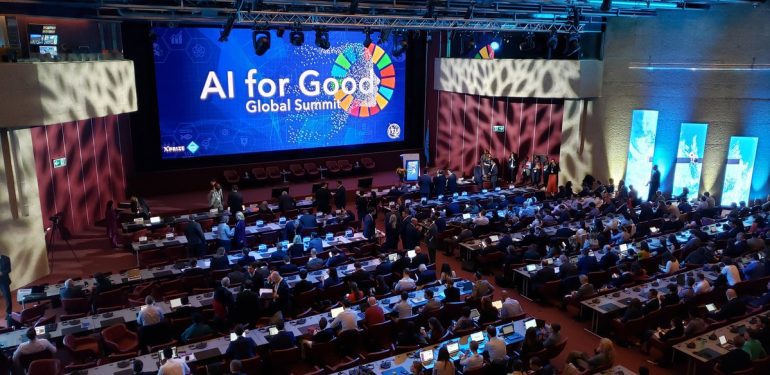- The UN’s AI for Good conference in Geneva convened global leaders to discuss AI’s potential and risks.
- U.N. Secretary-General Antonio Guterres highlighted AI’s transformative impact across various sectors.
- Concerns were raised about AI’s role in spreading misinformation online through text and image generation.
- Accessibility gaps in AI adoption were underscored, with 2.6 billion people still offline, emphasizing the need for inclusive progress.
- Experts stressed the importance of governance to mitigate negative consequences of AI advancements.
- Governments were praised for implementing regulations to ensure safe and inclusive AI deployment.
Main AI News:
As the U.N. telecommunications agency’s annual AI for Good conference kicked off in Geneva, top global figures convened to delve into the potentials and pitfalls of artificial intelligence. The event, spanning two days, has been a fixture in Geneva since 2017, serving as a platform for dialogue and collaboration.
In a video address, U.N. Secretary-General Antonio Guterres underscored the transformative nature of artificial intelligence, highlighting its promise across diverse sectors like education, healthcare, and meteorology. However, alongside its potential, concerns loom large, particularly regarding misinformation dissemination facilitated by AI-driven tools, including text and image generation.
Doreen Bogdan-Martin, head of the International Telecommunications Union, emphasized the urgency of addressing accessibility gaps in AI adoption. Despite the profound opportunities AI presents, a significant portion of the global population—about one-third, or 2.6 billion people—remains disconnected from the digital realm, amplifying the imperative for inclusive technological progress.
Throughout the discussions, the imperative of safeguarding against potential harms arising from AI advancements emerged as a central theme. Tristan Harris, a technology ethicist and co-founder of the Center for Humane Technology, cautioned against the unchecked pursuit of market dominance by AI companies, stressing the need for governance mechanisms that match the rapid pace of technological innovation.
Acknowledging the pivotal role of governmental regulations in shaping AI’s trajectory, Bogdan-Martin lauded jurisdictions that have taken proactive steps to implement safeguards and guidelines around AI deployment. She called upon stakeholders to collectively craft a future where technology serves humanity’s interests while upholding principles of safety, inclusivity, and sustainability.
Conclusion:
The discussions at the UN conference underscore the critical need for balanced AI development, focusing on inclusivity, safety, and governance. For businesses, this highlights the importance of ethical AI practices and compliance with evolving regulatory frameworks to navigate the dynamic landscape of AI innovation.

